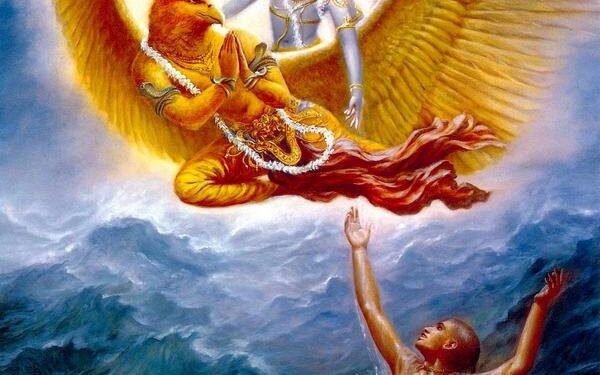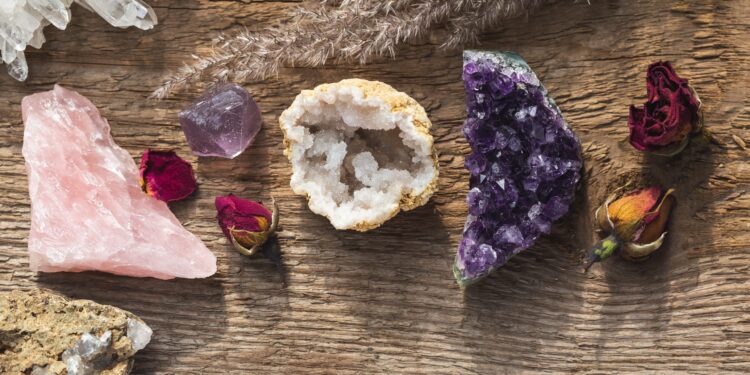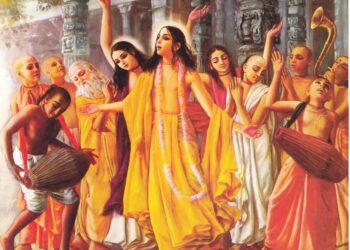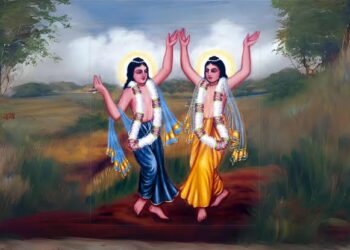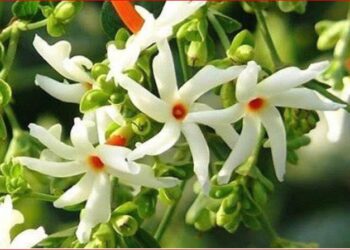tr. J.L. Shastri/A board of scholars, Ancient Indian Tradition and Mythology 12-14, Motilal Banarsidass, Delhi 1982.
(extracts with notes in [] by JanM, 1997)
- Acara (Karma) kanda,
- Dharma (Preta) kanda,
- Brahma (Moksa) kanda
“… Hence, Bhagavata is the highest of all Puranas. The Visnu Purana comes next, then comes Garuda. The three are principal Puranas in the Kali age. Garuda contains some additional matter.” (3.1.45-6)
1.2.15 Lord Visnu is devoid of physical body
1.4.37-8 perfect brahmacaris attain Brahmaloka, perfect grhasthas Prajapatiloka, perfect vanaprasthas Saptarsiloka, perfect sannyasis the imperishable region (Brahman)
1.5.2-5 mind-created sons [of Brahma], seven types of pitas – Barhisads, Agnisvattas, Kravyadas, Ajyapas, Sukalins, Upahutas and Dipas – of whom three are formless and four having forms
1.5.14-16 …Sumati, the wife of Kratu, gave birth to Balakhilyas (Valikhilyas). Sixty thousand in number, resplendent like the blazing sun, although they were of the size of thumb – they became sages of sublimated vitality.
1.15.* Visnu-sahasra-nama-stotra
1.19.19 om kuru kunde (or kule) svaha [pranesvari vidya, against serpents]
1.19.23 om hrim hraum hrim hrim bhirundayai svaha (recited to the ear of the patient removes poison)
1.45.* characteristics of salagrama
1.46.* vastu-puja (worship of the site for building, choosing places of objects and their orientation)
1.50.69 “Then he shall perform the fire yajnas to gods, to the living beings, to the manes, to men and to the Brahma(n). [panca-maha-yajna]
1.50.70 “If he has already performed Brahma yajna [Manu 3.70] before Tarpana (water offering to deva-rsi-bhuta), he can proceed with his study of Vedas after performing Manusya yajna (the sacrifice to men).
1.50.71 Vaisva deva (oblations to fire before meals intended for all deities collectively) shall be performed – it is called Deva yajna. The offering to bhutas – living beings or spirits – is to be known as bhuta yajna.
1.50.72 Food offerings to dogs, svapacas (outcastes), fallen people, on the ground outside (the house) as also to the birds.
1.50.73 Pitr yajna is conducive to liberation. The best man shall feed a single brahmana bearing all the manes in mind. It has to be performed every day faithfully.”
1.51.* charity
1.58.8-22 sun, sage, yaksa, raksasa, apsara, gandharva, serpent [of sun god’s suite change] in each of 12 months: sages pray to the sun, gandharvas sing in front, apsaras dance, raksasas walk behind the sun, serpents bear the yoke, yaksas catch hold of the reins, Valikhilyas sit surrounding the sun.
1.59.-62.* astrology (Lord Hari speaks to Rudra)
1.59.40 “Add together the letters in the names of the husband and wife. Divide by three. If two is the remainder, wife is harmed, if one or zero, husband is harmed.”
1.60.15-17 Hikka (sound of hiccup) when heard from east: great results, south-east: sorrow and anxiety, south: loss, south-west: sorrow and anxiety, west: sumptuous feast, north-west: money, north: quarrel.
Physiognomy
1.63.5-6 people destined to become: great men or kings – one hair in each pore, great scholars and Vedic interpreters – two hairs out of each pore, poor – three hairs out of each pore.
1.63.10-14 three parallel lines on forehead: happy with children, life up to 60 years, 2 lines: 40 years, 1 line: 20 years, 3 lines extending up to ears: up to 100 years, 2 lines up to ears: 70 years, 3 lines partly distinct and partly indistinct: 60 years, if the number of lines decreases: reduce 20 years from the previous, if the lines are broken in the middle, premature death is the result
1.64.6 “A real wife is like a minister for the personal affairs of her husband, a friend in executing his tasks, in affectionate dealings she is like his mother and in his bed she is like a courtesan to him. Such a wife is auspicious.”
1.64.8 woman with hairy sides and breasts and high lips: husband dies soon
1.64.11 little finger and thumb of a woman placed on the ground do not rest there: she will become a widow and of ill repute
1.64.12 woman who shakes the ground as she treads, kills her husband quickly and lives like a mleccha woman
1.65.57-60 (-> Samudrika) a round face: prosperity, lady will beget son, a long face: poverty, misfortune, great sorrow, a square face: coward, sinner, rogue, a depressed face: issuelessness, a short face: miserliness
1.65.112 If the palm is placed on the ground and the little finger and the ring finger do not touch the ground, she is surely a whore.
1.65.114 long neck of woman: destruction of family
1.65.115 stout neck: she becomes very fierce. Squint in the eyes, dark blue or tawny in the eyes, roving eyes: absence of chastity
1.65.116 If when she smiles two dimples are seen in the cheeks, she is surely one adulteress.
1.65.117 …if the buttocks hang down, she kills her husband. A mustache-like growth of hair above the upper lip is inauspicious for the husband.
1.65.118 Hairy breasts are inauspicious and uneven ears too are inauspicious.
1.65.119 If the gum is dark blue, she is a thief, if the teeth are long, she will bring about the death of her husband.
1.65.120 An elevated upper lip indicates quarrelsome nature and harshness in speech.
1.67.* [Siva tells Gauri after hearing from Visnu:] svarodaya or parama-vijaya (planets and nadis in the body -> auspicious/ inauspicious times)
Gems
1.68.9-10 “These are the different kinds of gems: Vajra (diamond), Mukta (pearl), Mani (gems), Padmaraga (ruby), Marakata (emerald), Indranila (sapphire), Vaidurya (lapis lazuli), Pusparaga (topaz), Karketana (?, Karkenata – a species of quartz), Pulaka, Rudhira (blood red stone), Sphatika (crystal), Vidruma (coral). Persons who know gems have classified them thus.”
1.68.12 Gems bought or first used in a bad lagna or inauspicious day become defective and lose even their merits.
1.68.27-29 diamonds with defects – inauspicious, bring bad luck up to death
1.70.19 “If anyone wears a gem of many flaws our of ignorance, then grief, anxiety, sickness, death, loss of wealth and other evils torment him.”
1.70.30 “Even one Candala can attack and kill a number of brahmanas. Similarly, a spurious alien gem can nullify the potency of many gems endowed with good qualities.”
1.81.24 “He who takes a holy dip in the tirtha of Manasa (mind) that has the eddy of Jnana (pure knowledge) and the pure water of Dhyana (meditation) that removes the dirt of Raga (passion) and Dvesa (hatred) attains the supreme goal.”
Yajnavalkya-smrti
1.93.11-13 Garbhadhana (conception) [is performed] after the menstruation, Pumsavana before throbbing of the child in the womb [with purpose to get a son], Simanta [parting child’s hair] in the sixth or eighth month, Prasava (delivery), Jatakarma (birth) [for child’s welfare], Namakarana (naming) on the eleventh day, Niskramana (coming out of the house for the first time) in the fourth month, Annaprasana (first feeding with the solid food) in the sixth month, and Cudakarana (cutting of the hair for the first time, only tuft – cuda – is left) as per practice in the family. Thus the sin of seed and conception is nullified. To girls these rites are performed without mantras.
1.94.17 …One shall never find fault with the food served. (+1.96.16)
1.95.24-26 The highest duty of a woman is to carry out the behests of her husband. Sixteen nights subsequent to the month menstrual flow are the nights of rut for women. The husband shall restrain himself during the parvan (full moon and new moon days), when the stars Magha and Mula are ascendant and on the first four nights. Thereafter, on even nights, he will be able to beget a healthy son of auspicious traits. If the woman is in a mood to receive him on any night he should satisfy her remembering that lust in women is terrible.
1.96.72 “By eating garlic and onion one becomes sinful and as atonement one should perform Candrayana. If one takes meat after worshiping deities and manes in Sraddha one does not acquire sin.”
1.96.73 “If one kills animals otherwise (and eats their flesh) he will fall into hell and remain there for as many days as there are hairs on that animal. Eschewing flesh a devotee attains God Hari after due prayer.”
1.97.10 “…[for purification] he should touch his right ear. Gods of Fire, etc. stay in the right ear of a brahmana.
1.98.3 A gift should never be taken by a person devoid of learning and austerity. By taking it he degrades the giver as well as himself.
1.98.8 The giver [of the cow] remains in heaven for as many years as there are hairs on the body of that cow. If the cow is tawny, it enables his seven generations to cross hell.
1.98.14 “The giver of the Vedas (in manuscript) attains the region of Brahma not accessible even to gods. Those who transcribe the Vedas with meanings, yajna sastras, dharma sastras, on payment, also attain the region of Brahma.
1.98.15 “Since God has created the universe with Vedas as the basis, collection of Vedic texts with bhasyas (commentaries) should be done with effort.
1.98.16 “He who transcribes Itihasas (epics) or Puranas or makes a gift of them,
1.98.17 attains merit equal to that of gifting Vedic text or even twice the fruit.”
1.101.2 [The nine planets:] “The Sun, Moon, Mars, Mercury, Jupiter, Venus, Saturn, Rahu and Ketu.”
1.101.3 “The malignant aspect is countermanded respectively by wearing copper, bell metal, crystal, the red sandalwood, gold, silver, iron, lead and bell metal on their bodies.”
1.101.4 “O sages, know their respective colors to be red, white, red, yellow, yellow, white, black, black and black.”
1.104.* specific karmic reactions for specific sinners and sins
1.105.48 Willful abortion and hatred of the husband are great sins in women without any expiation. [This chapter deals with atonements for specific sins.]
1.106.* pretasauca (rites and impurity subsequent to death of persons)
1.106.6 not to cry for dead person
Parasara-smrti
1.107.3 In the Kali age charity is the main virtue. Other virtues are likely to forsake the doer. Sinful deeds are perpetrated only in the Kali age. A curse bears fruit in a year.
1.107.28 “If the husband is untraceable, dead, or has renounced the world, is impotent or degraded – in these cases of emergency a woman can remarry.”
1.107.29 “A wife who dies in the company of her husband [sati] shall remain in heaven as many years as there are hairs on his person.”
Brhaspati Niti Sara 1.108-115:
Suta said:
1.108.1. Now I shall explain the essence of polity based on economics for the benefit of kings and others. It is holy conducive to longevity, heavenly bliss, etc.
1.108.2. A person wishing for success and achievement should always associate with good men: never with the wicked; it is good neither for this nor the other world.
1.108.3. One should always avoid arguments with mean-minded base people and shun even the sight of the wicked. He should avoid enmity with friends and intimacy with persons serving the enemy.
1.108.4. Even the scholar comes to grief by trying to advise a foolish disciple, by supporting a wicked wife and by keeping the company of the wicked men.
1.108.5. One should keep aloof from a brahmana foolishly puerile, a ksatriya averse to fighting, a vaishya sluggish and inactive and a sudra hot-headed and vain due to complete, defective study.
1.108.6. Alliance with an enemy or estrangement with a friend should be indulged in at proper time. A true scholar bides his time after a careful consideration of causes and effects.
1.108.7. Time allows all living beings to mature, time brings the dissolution of all people. Even when people are asleep, time is watchful and awake, it is difficult to transgress time.
1.108.8. The semen virile flows out at proper time and develops itself in the womb. It is time that causes creation and it is time again that effects dissolution.
1.108.9. The passage of time is incomprehensible. It has two-fold functions, an apparent gross movement at one place and a subtle invisible movement at another.
1.108.10. The divine preceptor Brihaspati expounded the essence of polity to god Indra which got him omniscience and heavenly glory after killing the asuras.
1.108.11. The worship of gods, brahmanas, etc. should be performed by saintly kings and brahmanas. They should also perform the horse sacrifice to wipe off their sins both small and great.
1.108.12. A person never comes to grief if he associates with good people, conducts discourses with scholars and contracts intimate friendship with persons devoid of greed.
1.108.13. Illicit contact with or gay revelries in the company of another man’s wife, desire for another man’s wealth or residence in another man’s house shall never be pursued.
1.108.14. A well-intentioned enemy is actually a kinsman and a kinsman acting against one’s interests is an enemy. Sickness in the body is inimical and a herb in the forest is friendly and beneficial.
1.108.15. He is a kinsman who works to our benefit; he is the real father who nurtures and nourishes us; he is a friend where confidence can be placed; it is the native land where sustenance is available.
1.108.16. He is the true servant who is loyal and obedient; it is the real seed that germinates well; she is the real wife who speaks pleasantly and he is the real son who lives to the family tradition.
1.108.17. His life is perfect who has virtues and good qualities; fruitless, indeed, is the life of a man devoid of these two.
1.108.18. A true wife manages the household affairs skilfully, speaks sweet pleasant words, solely dedicates herself to her husband and is loyally devoted to him.
1.108.19-21. The man who has a wife endowed with these qualities is no less than Indra, the lord of heaven. He is no ordinary man. The good wife takes her daily bath, applies sweet scents to her body, speaks sweetly, is satisfied with limited quantity of food, is not garrulous, has always auspicious things around her, is very scrupulous in virtuous activities, exhibits her love to her husband by every action and is pleased to surrender herself to his dalliance after the four days of the menstrual flow. She enhances the good luck of everyone.
1.108.22-23. What we call old age is not so dispiriting as a wife devoid of good qualities and possessing all bad traits – ugly-eyed, slovenly, quarrelsome, argumentative, visiting other people’s house frequently, depending on other people’s help, evil in actions and devoid of shame.



